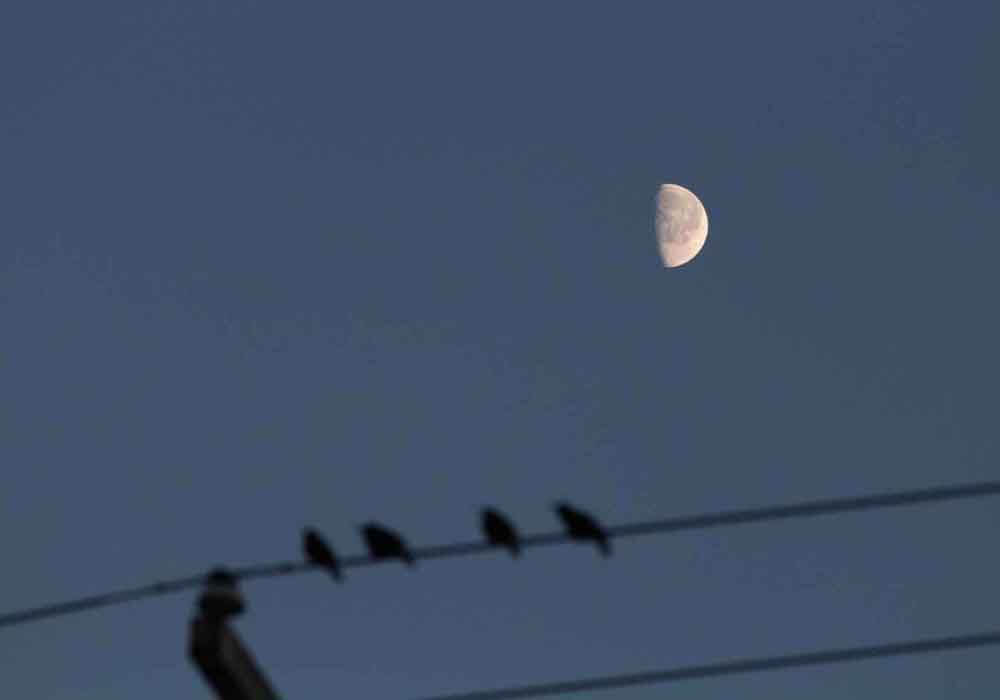Why
Do Birds Chirp?
What Are They Trying To Say?
One of the most endearingly sounds you hear in summer evenings is that of the chirping birds...but why do birds chirp? Wanderers of all ages have always been intrigued by what drives birds to make that familiar sound, without much knowledge of its purpose and intention. The reasons birds perform their songs can differ vastly, but most have one thing in common.
Chirping is a very bird-specific way to communicate and can vary in length and pitch. Birds have various ways to vocalize, but chirping is reserved for some specific situations: setting up territory and trying to attract a mate. By chirping, birds can send a short burst of information in no time.
As we investigate more about why do birds chirp, we are only satisfied with our curiosity but also amazed by the intricacy and accuracy of nature's creations. You've probably heard the song of birds but never really took a second to ponder why they chirp. But now that you've got that question on your mind, chances are you'll want to look for an answer.

Birds Chirp To Communicate
Chirping is a form of communication for most songbirds and is an essential part of their everyday life. While birds have a variety of methods to communicate with each other, chirping is one of the primary and most straightforward ways they do so.
It's similar to what we call talking. We use words to convey our thoughts and feelings, while birds sometimes use chirps and calls to let other birds know what they're up to and where they are.
They can make different kinds of calls and use them in different situations. Some bird calls attract mates, while others are made as warning calls. Each call has its own meaning, and it's essential for the bird that hears it to know what kind of call it is.
Birds use their voice with different volumes, pitches, and rhythms depending on what message they want to send. Their voices are often melodious, but they also enjoy making their own tunes.
Keen-eared humans who've been keeping an ear out for bird calls since birth might be able to discern individual sounds that different species make, but it's not always easy to tell what exactly the bird is trying to say.
A study published called Glimpses of Mind in Birds found that some bird species can even vary the pitch of their chirps to convey completely different meanings.
Sometimes, it can be a greeting or an acknowledgment of another bird's presence. Other times, it can be a territorial statement referring to their nest, telling others that this is their territory. It can also be an alarm call letting others know about predators and other dangers.
Some believe that the frequency of chirps is determined by their breeding season and their sex, age, and social status. While we can't exactly assume that this is precisely what causes them to chirp, we can say that they make a pretty sound when they do!
Birds aren't the only animals that use their voices to communicate. In fact, all animals have a way of communicating with each other through vocalizations.
Different species have different ways of communicating through chirping, barking, growling, and singing. It's pretty interesting to think about how they do it! Even though they're not talking in our language, we can still figure out what they're trying to say through observations.
Birds Chirp by Using Their Syrinx
From the time we're young, most of us learn to associate the sound of birds chirping with springtime. The high-pitched trills from their tiny throats signify that warmer days are just around the corner.
It's hard to think about the world without a bird's song, but it's impossible to imagine how it works. How does a bird make such a beautiful sound with its tiny stature?
A few elements come together to answer this question, including the bird's anatomy, the frequency of its call, and its environment. To understand a chirping bird, you first must know how birds make sounds.
Chirping is produced by the syrinx, which is like a bird's vocal organ located at the bottom of its trachea (or windpipe). It's basically the voice box, consisting of two membranes: the lower one vibrates while the top one stays still.
The syrinx is a bony structure in birds' throats that produces sounds when air passes through it. Just like the larynx of humans, it's made up of two small membranes called vocal cords. But unlike the larynx, it has no actual cartilage. Instead, it has pared small specialized bones embedded in the membranes.
When the bird inhales, its ventricles expand, and air flows through the vocal folds. When the bird exhales, the air exiting the syrinx overpowers the airflow from the lungs, causing a change in pressure in the air around it. This shift in pressure generates sound waves that we hear as chirping.
Sound waves created from the vibration of the lower membrane are amplified by the resonating chambers of the syrinx. The result is that chirping, singing, and other bird noises are all produced through this process.
For most birds, the song is controlled by their brains. They can sing complex songs because their brains have the capacity for learned behavior–they're able to memorize what they hear and imitate it.
We perceive a song as a series of individual notes in a specific order repeatedly repeated, often for a particular meaning.
However, not all species of birds have this ability to sing learned songs–they just make sounds that would be described as general chirping or tweeting. These birds can only produce one sound at a time after hearing it once. Often, this is just an alarm call that triggers instinctive behavior rather than an actual song.
Here's an interesting YouTube video
that discusses our topic in greater depth
Why Do Birds Chirp in the Morning?
Birds chirping is the first thing many of us notice in the morning, and for a good reason: it's a joyful sound, indicating that the day is beginning. It may seem that their morning chorus is a random, unexpected occurrence, but several reasons do exist.
One of the most welcomed theories is that birds chirp in the morning to ward off predators. Birds know they're vulnerable when the sun is down, so they use their voices to communicate and stay safe. Those early-morning tweets might also help birds decide where to migrate or find food.
Therefore, the most common reason a bird chirps in the morning is because it signifies territoriality. If another bird enters its territory and sounds an alarm, the other bird will understand that it should stay away.
In many cases, the bird may try to attract a mate, so the sound is more like singing.
Why Do Birds Chirp at Dusk?
Birds have a diverse range of calls, but the most common one you're probably familiar with is their morning call. Throughout the day, they'll chirp to keep in touch and let everyone know where they are. But at dusk, birds use their chirps in a completely different context.
You might think it's because the birds wake up from their naps, but there's more to it. The sun is what gives us daylight. In the evening, it gets lower and lower in the sky until it's completely gone. And as light fades and darkness fall, our environment changes too.
Birds are constantly aware of their surroundings and adjust their behaviors to accommodate these new conditions. One of these adjustments is a shift in chirping behavior.
When the sun sets and light disappears from the sky, a bird's perspective of its environment changes. The bird will start to chirp at dusk to keep up with this change. They do this to communicate with each other and as a survival technique for keeping themselves safe.
Birds are very adaptive creatures and can survive in any environment so long as they can adapt. Due to this, they have developed numerous habits that help them do just that. Chirping at dusk is one of these habits.
Why Do Birds Chirp at Night?
When we think of birds, most of us probably picture them bright-eyed and cheery in the morning or afternoon. You'll be surprised to hear that most birds chirp at night–and not just on Halloween!
While chirping at night is used to communicate, they rely on sound to warn others of possible danger when the sun goes down. Additionally, chirping at night is also used to establish territory and attract potential mates. The chirps are a way to broadcast to other birds their wants and needs.
Birds have a wide range of noises that they use in their communication. They often give different chirp noises for different situations, like trying to defend themselves from intruders, even at night.
Why Do Birds Chirp the Same Thing Over and Over?
To appreciate why birds do what they do, we must see what's happening from their perspective.
When you are a bird, your primary concern is food and shelter. You want to find food, you want to find shelter, and you want to defend your territory (which includes your nest) from other birds or even animals that might want to harm you.
By chirping the same thing repeatedly, birds can quickly get other birds' attention and warn off predators. This is particularly profound when a male sings his song to attract the attention of a female to mate with. Additionally, repeated chirping is associated with calls for food.
Why Do Birds Chirp?...Final Thoughts
If you're wondering why birds chirp, despite their complex aural soundscape, they do so to communicate with one another. Their vocalizations (or chirps) are unique and help birds distinguish themselves from other birds as individuals.
Birds communicate in different ways, and it can be challenging for us to understand what's going on for them. Because something doesn't make sense to us doesn't mean it's not a meaningful part of their lives.
It's easy for humans to misinterpret birds' behavior at times, but they're not intentionally being strange or annoying–they're just trying to get by as best they can!
Back To The TOP Of This
Why Do Birds Chirp Page

About the Author...
Richard Worden, a dedicated bird lover for over 20 years, I love to share my in-depth knowledge and passion for birds. Read more About Me and my expertise in this field.
- We Know Birds HOME ›
- Bird Behavior Facts and Information ›
- Why Do Birds Chirp?



